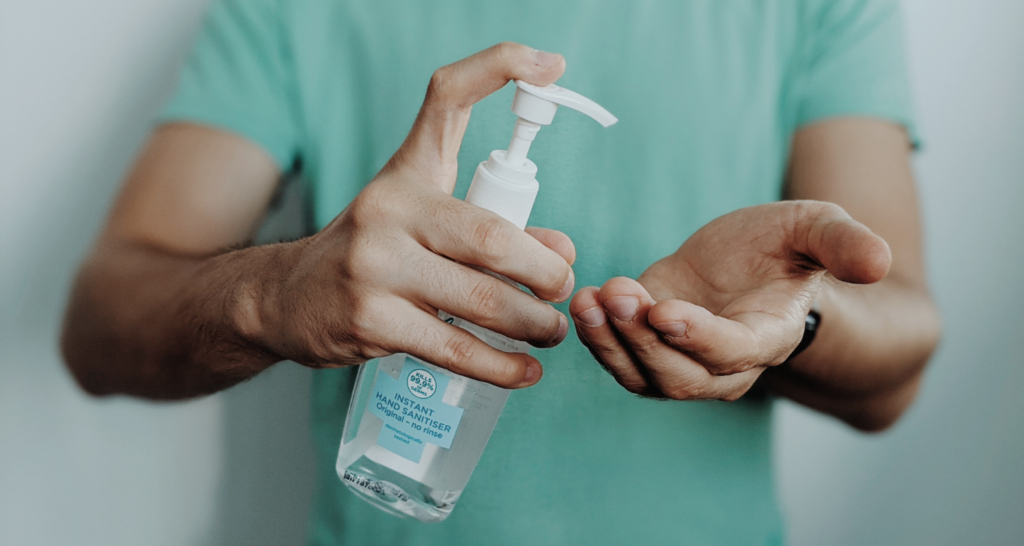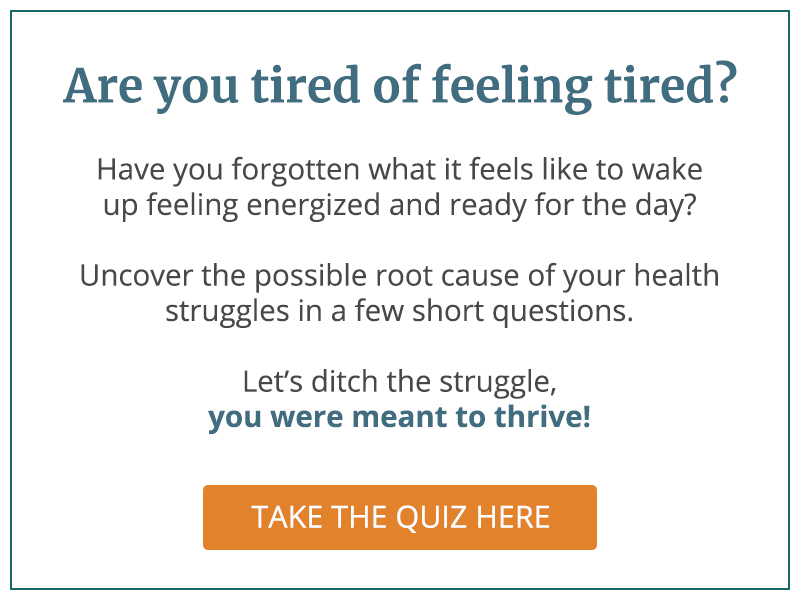Over the years, we’ve been taught that clean is better than dirty, right?
Cleanliness is next to godliness, after all.
And when scientists discovered that microscopic organisms are what make us sick, an all-out war was declared on every single invisible microbe that may be lurking on every single surface.
But now that the gut microbiome is understood to be a crucial part of your body’s immune system, doctors are wondering if obsessive cleanliness and over sanitizing may be harming the most powerful tool we have against viruses and bacteria.
Now, I’m not suggesting that you stop spraying on that hand sanitizer during the middle of a pandemic.
But what I am suggesting is that in addition to protecting yourself with hand washing and sanitizing, you consider the optimizing and strengthening of your microbiome to be an equally important part of your strategy to stay healthy.
How Over Sanitizing Can Affect Your Health
Many scientists believe that the prevalence of antibacterial soaps, wipes, and sprays correspond to the rise in diseases like asthma and allergies. This is because when we over sanitize, we’re killing the bad bacteria, but we’re also killing the good bacteria that work to keep us healthy.
In fact, a study of Amish children who lived on farms and were regularly exposed to dirt, farm animals, and their microbes had a significantly low incidence of hay fever, allergies, and dermatitis.
Another interesting study looked at how parents handled the all too familiar infant scenario: the dropped pacifier…Parents who simply licked off the pacifier and handed it back to their child, rather than sanitizing it first, actually seemed to increase their baby’s immune function. Believe it or not, babies who received the licked pacifier back were less likely to have eczema, asthma, or allergies. This protection appeared to remain as the children aged, even up to 3 years old.
These studies seem to support what’s known as the hygiene hypothesis. The theory is that a child’s immune system needs to be challenged and educated in order to evolve into a fully functioning and effective one. The microbiome needs to be built up and colonized by a variety of different microbes in order to be its best.
Furthermore, there’s evidence that the microbiome that lives on your skin plays an active role in protecting you from infection. Recent studies suggest that there is a complex ecosystem of microbes that live on your intact skin and they actually engage immune response and activate immune cells.
But they can’t do their job if they are constantly being sanitized to death.
If your hands are dry and cracked from over sanitizing, this can also prevent the skin microbiome from coming to your aid.

Incorporating “Dirty” Habits Into Your Life
Again, I’m not suggesting that you forgo cleaning your hands. But regular old soap and water are actually really effective at killing germs. Especially if you’ve likely been exposed to pathogens, wash, and sing Happy Birthday a few times. And if you can’t wash, hand sanitizer is a great option.
If you’re not in a high-risk environment, however, it’s fine to get a little dirty sometimes.
In fact, I’d encourage it. Some of my favorite ways to incorporate a little dirt into my life include:
Gardening
Putting your hands in the soil has an amazingly therapeutic effect. And eating the foods that you’ve grown in the dirt means they aren’t going to be obsessively cleaned, waxed, and gassed, either. If you’re lucky, some of that residual dirt on your hands or on your food may contain a type of bacteria called mycobacterium vaccae that’s common in soil and has been shown in studies to produce serotonin. Serotonin is known as the “happy chemical” in the brain and is believed to play a role in decreasing depression and anxiety.
Earthing
Earthing is another great way to get dirty. If you’re the type who always has to put on shoes to walk outside, you may want to think twice about that habit. Earthing, or the practice of connecting with the earth, especially through your feet, has been studied for its health benefits, including reducing inflammation and increasing immune response. Swimming in the ocean or a lake, or dipping your toes in a stream counts as earthing as well.
Nature Bathing
The practice of immersing yourself in the forest has been around for thousands of years. And now scientists are realizing that nature bathing can benefit immune function and lower blood pressure. If you don’t have time to completely get lost in the woods for a few days, simply taking a walk outside can have massive benefits for your health, too.
Don’t Be Too Clean
Bottom line, protecting and preserving your skin and gut microbiome with all of their good bacteria, should be a priority when considering how much you sanitize. Remember, we are equipped with a natural defense system that is working to protect us from pathogens.
A healthy diet that’s diverse in vegetables and fruit, regular exercise, and making sure you get plenty of sleep are the best defenses you’ve got against any bug that tries to make you sick.
And if you feel like you’re doing everything right, but still not feeling the energy and vitality you think you should, we should talk.
You can schedule a free 15-minute call with me here.
References
“Amish children living in northern Indiana have a very low ….” 19 Apr. 2012, https://www.jacionline.org/article/S0091-6749%2812%2900519-2/abstract.
“Pacifier Cleaning Practices and Risk of Allergy Development ….” 1 Jun. 2013, https://pediatrics.aappublications.org/content/131/6/e1829.
“Asthma: The Hygiene Hypothesis | FDA.” 23 Mar. 2018, https://www.fda.gov/vaccines-blood-biologics/consumers-biologics/asthma-hygiene-hypothesis.
“The skin microbiome – NCBI – NIH.”
https://www.ncbi.nlm.nih.gov/pmc/articles/PMC3535073/.
“Soil Bacteria Work In Similar Way To Antidepressants.” 2 Apr. 2007, https://www.medicalnewstoday.com/articles/66840.
“Ingestion of Mycobacterium vaccae decreases … – PubMed.” https://pubmed.ncbi.nlm.nih.gov/23454729/.
“Earthing: Health Implications of ….” 12 Jan. 2012, https://www.ncbi.nlm.nih.gov/pmc/articles/PMC3265077/.
“The effects of grounding (earthing) on ….” 24 Mar. 2015, https://www.ncbi.nlm.nih.gov/pmc/articles/PMC4378297/.
“A comparative study of the physiological and psychological ….” 22 Jun. 2019, https://www.ncbi.nlm.nih.gov/pmc/articles/PMC6589172/.


